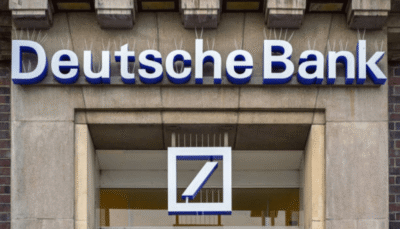A groundbreaking proposal to establish a state-managed Bitcoin reserve has taken a major step forward in Texas, as Senate Bill 21 cleared the House Committee on Government Efficiency this week. The legislation, which has already passed the state Senate, now heads to the House floor for a final vote before potentially landing on Governor Greg Abbott’s desk.
Passed along party lines in a 9–4 committee vote, the bill seeks to create the “Texas Strategic Bitcoin Reserve,” a digital asset treasury that would be overseen by the state comptroller—currently Glenn Hegar. It authorizes the comptroller’s office to invest public funds in digital assets that meet a strict market capitalization threshold: only cryptocurrencies with an average market cap of at least $500 billion over the past year would qualify.

Given current market conditions, that restriction effectively limits eligibility to Bitcoin alone, reinforcing Texas’ growing alignment with the crypto sector’s flagship asset. Supporters argue the measure could enhance financial sovereignty and help future-proof state reserves against fiat currency volatility.
If enacted, Texas would become one of the first U.S. states to formally hold Bitcoin as part of its strategic reserves—a move likely to spark further debate and potentially inspire similar proposals across other crypto-forward jurisdictions.
Texas Eyes Crypto Milestone
Originally introduced in January as a Bitcoin-only initiative, Senate Bill 21 has since evolved to allow for the inclusion of other high-cap digital assets in the future. However, Bitcoin remains the central focus. The bill, championed by Republican Senator Charles Schwertner, is gaining momentum ahead of the Texas Legislature’s June 2 adjournment deadline.
The revised version authorizes the state to invest in any digital asset with a market capitalization exceeding $500 billion over the past 12 months. While Bitcoin is the only token that currently meets this requirement, the threshold leaves room for future diversification should other cryptocurrencies reach similar scale.
Julian Fahrer, founder of Bitcoin advocacy group Bitcoin Laws, noted on X that the coming weeks will be critical, with the bill now primed for a final vote. Should it pass, the legislation would move to Governor Greg Abbott—a longtime supporter of blockchain innovation. Abbott, who accepted Bitcoin donations during his 2014 campaign, has previously expressed a desire to make Texas the “crypto capital” of the United States.
Bitcoin Reserve Momentum Builds as U.S. States Take Diverging Paths
As Texas moves closer to establishing its own Bitcoin reserve, other U.S. states are advancing digital asset legislation of their own—highlighting a fragmented but accelerating trend toward crypto integration in public finance.
In Arizona, Governor Katie Hobbs signed a landmark bill on Wednesday authorizing the creation of a Bitcoin and Digital Asset Reserve Fund. Notably, the fund will not use taxpayer dollars or direct state funding. Instead, it will be built from unclaimed digital assets, which the state is also authorized to stake or use to collect airdrops—creating a self-sustaining mechanism for growth.
Just days earlier, New Hampshire joined the crypto wave with Governor Kelly Ayotte signing House Bill 302 on May 6. The new law allows the state treasury to invest in digital assets with a market cap over $500 billion, once again making Bitcoin the sole eligible asset under present market conditions.
Not every state is embracing the shift. Florida, for example, withdrew its two Bitcoin reserve bills from consideration on May 3. On the same day, the state legislature passed numerous unrelated measures—including those focused on water quality, smartphone usage in schools, and conservation—suggesting that crypto initiatives may be losing traction in the Sunshine State.
With state-level policies diverging, the path toward public-sector crypto adoption in the U.S. remains highly dynamic—presenting both opportunities and challenges for the broader market.
Quick Facts
- Texas is advancing a bill to establish a Bitcoin reserve, with Senate Bill 21 headed to the House floor for a full vote.
- The reserve would be managed by the state comptroller and limited to digital assets with a $500B+ market cap—currently only Bitcoin.
- The bill passed committee along party lines, signaling strong Republican support for crypto integration in state finance.
- If enacted, Texas would become the first U.S. state to officially include Bitcoin in its strategic financial reserves.





